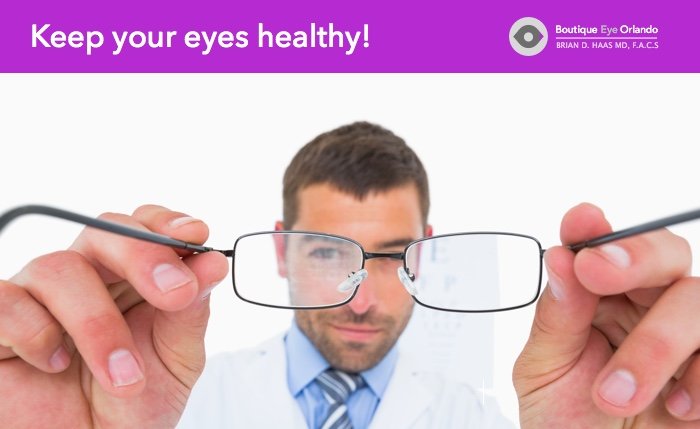Introducing our new optometrist Dr. Beth Norris
February 10, 2015Can Cataracts Grow Back?
March 23, 2015When we’re young, eye health is the norm. From childhood through our 20s, everything in the eye functions basically as it’s supposed to.
Even as we get into our 30s, our lenses are generally clear and flexible, and the zonules that connect them to our eyes are strong.
As we get into our 40s, eye problems, not eye health, become the norm. Our lenses become harder and less flexible, the zonules weaker. In our 50s, we see more of the same, and usually need bifocals or corrective lenses to see properly. We also face an increased risk of cataracts, glaucoma, and macular degeneration.
We can’t eliminate the effects of aging, but like any potential malady, prevention is much easier than treatment. Let’s go through some of the things you can do to maintain your healthy eyes longer.
1. Eat right
Dark greens like spinach and kale are wonder foods for eyesight. That’s because the antioxidants in them protect your eyes against damage from irritants like sunlight, cigarette smoke, and air pollution. They’re even believed to absorb damaging visible light.
Grapefruit, strawberries, and other sources of vitamin C (another antioxidant) are also great for eye health, and the vitamin E from seeds and nuts combine with vitamin C to strengthen healthy tissue in the eye.
Foods rich in Omega-3 fatty acids also play a role in promoting healthy retinal function. Foods fish rich in oil and nuts are a good source of Omega-3, and most Americans don’t get enough of it.
2. Wear proper sunglasses
Sunlight is a form of radiation, and it can be especially harmful to our eyes. When looking for the right shades, make sure they block out 99-100 percent of both UV-A and UV-B rays.
3. Take a break from screens
Two things happen when we stare at our screens. First, we forget to blink, which results in our eye not lubricating itself properly and drying out. Second, the blue light emitted from screens is known to decrease the melatonin our body produces. Melatonin, among other things, plays a crucial role in our sleep phases.
Add it all up and you have a recipe for very tired, overworked eyes- in other words, eyes that degenerate more rapidly.
The National Eye Insitute recommends the 20-20-20 rule: for every twenty minutes you stare at a screen, look away, to a spot 20 feet in front of you, for 20 seconds.
4. Quit smoking
In addition to the obvious effects to heart and lung health, smoking also drastically increases the risk of many eye defects. There are many options available through your doctor for those who want to make 2015 their year to quit.
5. Get your eyes checked regularly
Getting your eyes checked regularly by Dr. Brian D. Haas―in a comprehensive, dilated eye exam—is the way to be sure about your eye health.
The truth is, many eye diseases simply don’t come with warning signs. A proper eye care specialist like Dr. Haas, can see things you can’t.
More tips
In addition to these five tips, the National Eye Institute also has a few other tips:
- Know your family history so you’re not caught off-guard by a hereditary eye disease.
- Maintain a healthy weight. Obesity carries an increased risk of diabetes, which often comes with eye trouble.
- Wear protective eyewear made of polycarbonate, which is ten times stronger than other plastics, when engaging in any activity that might hurt your eyes.
- Clean your hands properly and regularly. Many eye infection are transferred to the eyes by our hands.
The gift of sight is just that: a gift. If we take it for granted, we may lose it when we least expect it.
If you want to learn more about proper eye health, or want to schedule an eye exam, give us a call 407-841-1490. We’d be happy to hear from you.


